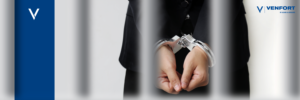The International Criminal Court (ICC), based in The Hague, the Netherlands, is the first permanent international criminal court to prosecute individuals for the most serious crimes of concern to the international community. Although its mandate is extensive, what makes it particularly relevant is its structured and transparent process, divided into several defined stages. Below, we explain the key phases that govern the functioning of this institution, highlighting their relevance and the procedures involved.
1. Preliminary Examinations
The ICC process begins with the so-called preliminary examinations, which are aimed at assessing whether a particular situation falls within the jurisdiction of the Court. In this phase, the Prosecutor examines information received from various sources, such as States, international organizations or individuals, to determine whether there is a reasonable basis to initiate an investigation. This step is crucial to ensure that the ICC's resources are focused on the most serious and relevant cases.
2. Investigations
If the Prosecutor decides to proceed, a formal investigation is initiated. At this stage, evidence and testimony are collected in order to establish the criminal responsibility of the alleged perpetrators. The cooperation of States and other entities is essential, as it allows the Prosecutor to access critical information, protect witnesses and ensure the security of the process.
Arrest Warrants and Subpoenas
When there is sufficient evidence linking a person to the crimes under investigation, the Prosecutor may request judges to issue arrest warrants or subpoenas. These measures seek to ensure the presence of the accused before the Court, a fundamental step for the holding of trials. In some cases, international cooperation is essential for the capture and surrender of the accused.
4. First Appearance
The first appearance before the ICC marks the formal start of the judicial process against the accused. During this hearing, the identity of the accused and the charges against him or her are verified. In addition, it ensures that the rights of the accused are respected, including the right to defense counsel and access to case documents.
5. Confirmation of Charges
Before proceeding to trial, the judges of the Pre-Trial Chamber evaluate whether the evidence presented by the Prosecutor is sufficient to confirm the charges. This hearing is an essential safeguard to prevent unjustified trials. If the judges determine that the evidence is insufficient, the charges may be dismissed.
6. The Trial
The trial is one of the most visible stages of the proceedings. During this phase, the Prosecutor and the defense present their arguments, evidence and testimony before the Trial Chamber. The judges, after evaluating all the evidence, issue a verdict on the guilt or innocence of the accused. This procedure is designed to ensure fairness and respect for due process.
7. Verdict and Sentence
If the accused is found guilty, judges pass a sentence commensurate with the gravity of the crime committed. This step also includes consideration of reparations for victims, an aspect that distinguishes the ICC from other international tribunals.
8. Appeals
The parties have the right to appeal both the verdict and the judgment. The Appeals Chamber reviews the case and may affirm, modify or reverse previous decisions. This mechanism provides an additional guarantee of justice and fairness.
9. Repairs
Finally, the ICC may order reparation measures for victims, which may include financial compensation, restitution or rehabilitation. This victim-centered approach reinforces the humanitarian character of the Court.
Conclusion
The functioning of the International Criminal Court is based on a methodical and transparent approach designed to ensure justice and respect for human rights. Understanding each of its phases underscores the institution's commitment to accountability and the prevention of impunity.
As lawyers specializing in international criminal law, at Venfort Abogados we are committed to providing professional and ethical representation before this and other international courts, ensuring that our clients receive a solid and well-founded defense.













